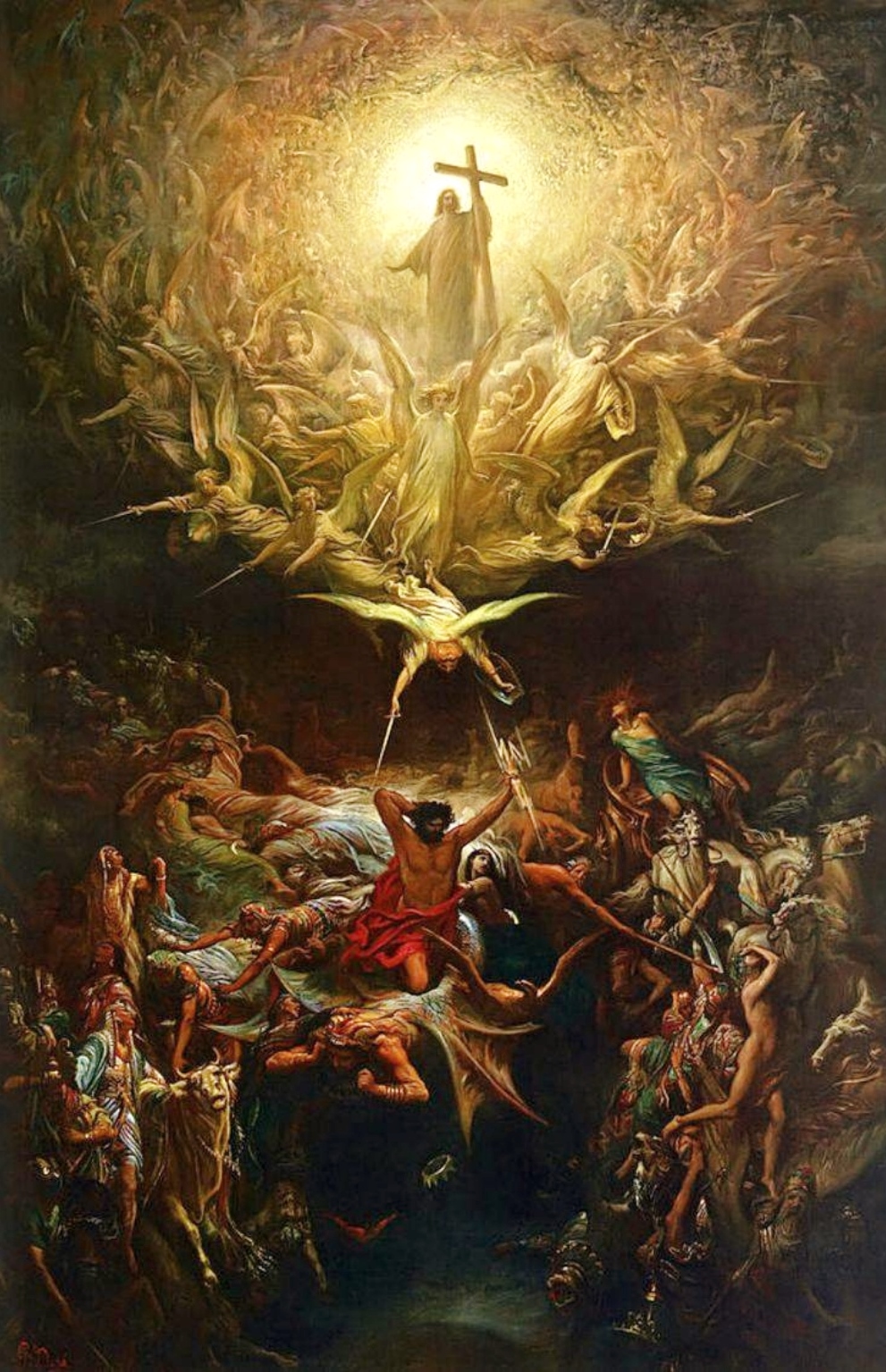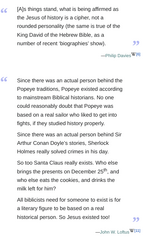TomC
Bless Your Heart!
- Joined
- Oct 1, 2020
- Messages
- 9,922
- Location
- Midwestern USA
- Gender
- Faggot
- Basic Beliefs
- Agnostic deist
I don't see it that way at all. Obviously, Historical Jesus existed. The (first century equivalent of) the name was quite common.Either way I doubt Jesus was ever real, just one of them many things I already wondered about things.
Similarly, lots of people were condemned to crucifixion, mainly for anti-government activities. Judea had lots of people and groups violently opposed to the Roman oppressors and their Jewish lackeys.
The likelihood that a guy named Jesus was sentenced to crucifixion, by Pontius Pilate around 30ce, is a no brainer. Probably more than one.
Then there's the other details of his history. Mary and Joseph were common names. Lots of people lived in Galilee. The bio of historical Jesus is way beyond plausible.
That's completely different from the mythical Christ. The miracle working demigod. He was publicly executed, resurrected, preached for a few more weeks, then Ascended to Heaven and became part of a previously unknown pantheon, The Trinity. But hardly anyone noticed at the time. I think that it took a few years for Historical Jesus to morph into a Legend, which grew into a Myth once the legend was transplanted into the Greco Roman empire outside of Judea.
I find it interesting to speculate about what kernels of truth got wrapped in so many layers of legend that they became myth, and resulted in the religion that dominates the world I live in. But it's mostly speculation. There's almost no reality, beyond the most prosaic parts.
Tom




